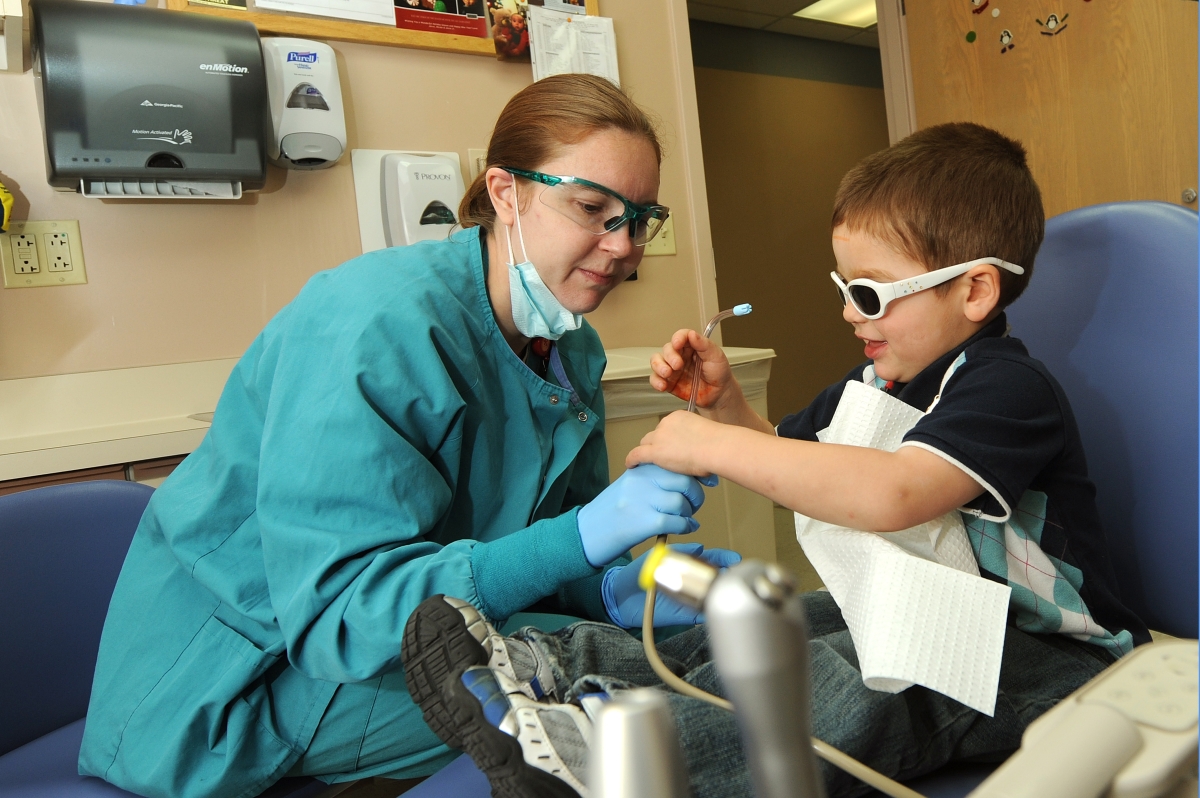Pediatric Dentist: Specialized Care for Your Child's Dental Wellness
Pediatric Dentist: Specialized Care for Your Child's Dental Wellness
Blog Article
A Comprehensive Overview to Pediatric Dental Care and Its Duty in Protecting Against Typical Oral Troubles
Recognizing pediatric oral care is necessary for developing a structure of lifelong oral wellness in kids. Early dental brows through, proper dental health techniques, and dietary understanding are important components that can substantially alleviate the danger of typical oral troubles such as tooth cavities and malocclusion. By gearing up both caregivers and children with the required understanding and abilities, we can foster healthy and balanced routines that promote anxiety-free dental experiences. Yet, the question remains: exactly how can these methods be efficiently applied to guarantee long-term results?
Importance of Early Dental Check Outs
Recognizing the importance of early oral visits can establish the foundation for a kid's long-lasting oral wellness. Establishing a connection with a pediatric dentist as early as the eruption of the very first tooth, normally around six months old, is crucial. These initial sees not just familiarize youngsters with the dental setting but also allow for early detection of potential concerns, such as misalignment or cavities.
Very early dental exams encourage caretakers with valuable understanding regarding appropriate oral care, nutritional referrals, and the prevention of dental diseases. Pediatric dental professionals are knowledgeable in attending to the unique requirements of kids, ensuring that they receive age-appropriate education and learning on dental health. Moreover, these visits provide a possibility to discuss habits such as thumb-sucking and pacifier usage, which can affect oral development.
Necessary Oral Hygiene Practices
Developing a solid structure for a kid's oral health and wellness exceeds routine dental brows through; it additionally entails instilling effective dental hygiene practices from a very early age. Moms and dads and caretakers play a crucial duty in training kids correct techniques to keep their dental wellness.

Flossing should begin when two teeth touch, as this avoids plaque accumulation in hard-to-reach locations. Moms and dads must assist their kids with cleaning and flossing till they are regarding 7 or eight years of ages to ensure thoroughness.
Additionally, establishing routine oral check-ups every six months permits expert monitoring of oral health. Showing youngsters the value of dental hygiene and making it a fun, appealing activity can foster long-lasting healthy behaviors that are essential in stopping typical dental problems.

Duty of Nutrition in Dental Health And Wellness
Nutrition plays a pivotal duty in preserving optimum oral wellness, as the foods youngsters eat can dramatically impact the advancement and strength of their teeth. A healthy diet regimen rich in necessary vitamins and minerals is vital for constructing solid enamel and sustaining overall dental health and wellness (kid dentist near me). Key nutrients, such as phosphorus, calcium, and vitamin D, are important for the development of healthy and balanced teeth and bones. Foods like dairy products, leafed environment-friendlies, and fortified grains can improve calcium and phosphorus degrees, while direct exposure to sunshine or nutritional resources of vitamin D can boost calcium absorption.
Alternatively, a diet high in sugars and acids can bring about detrimental effects on dental health and wellness. Sweet snacks and drinks can foster the development of unsafe germs in the mouth, causing boosted level of acidity and a higher threat of dental caries. It is important for caretakers to urge healthier treat options, such as fruits, vegetables, and whole grains, which not just supply essential nutrients yet also advertise saliva manufacturing, more securing teeth.
Typical Dental Problems in Kid
Dental health and wellness problems are an usual worry for several parents, as kids can experience a selection of troubles that might impact their read this post here dental well-being. One widespread problem is dental caries, or cavities, which emerge from the demineralization of tooth enamel as a result of acid-producing bacteria. This problem is typically worsened by inadequate dietary routines, such as frequent consumption of sweet snacks and drinks.
Another common trouble is malocclusion, where teeth are misaligned, leading to problems in biting, chewing, and speaking. Furthermore, gingivitis, a very early type of gum tissue illness, can happen in kids, commonly due to inadequate dental hygiene practices.
Tooth injuries, consisting of cracks or avulsions, are also regular amongst energetic youngsters. These can arise from falls, sports, or mishaps. Early recognition and treatment are critical in handling these problems to stop more problems. Normal dental examinations play an essential role in spotting and attending to these common dental concerns efficiently.
Structure Lifelong Dental Routines
Instilling good oral hygiene practices early in life establishes the structure for a lifetime of healthy teeth and periodontals. Establishing a regular routine for brushing and flossing is crucial; kids should comb their teeth twice a day with fluoride toothpaste and start flossing as soon as 2 surrounding teeth touch. Parents play a crucial role in modeling these behaviors, as children typically copy grown-up techniques.
Informing kids dentist dental care regarding the significance of dental care can even more enhance these routines. Usage engaging techniques, such as stories or interactive games, to help them comprehend why routine oral check outs and appropriate health are necessary. Furthermore, introducing a well balanced diet low in sugar can significantly decrease the threat of dental caries and promote dental health.
Regular oral examinations, usually recommended every six months, provide a possibility for expert assistance and early discovery of potential problems. These check outs can likewise aid children build a favorable association with oral treatment. By cultivating these behaviors and mindsets from a young age, moms and dads can equip their youngsters to take responsibility for their oral health and wellness, inevitably bring about a lifetime of certain smiles and minimized oral troubles.
Conclusion

Early dental visits, appropriate oral hygiene techniques, and nutritional awareness are critical parts that can dramatically mitigate the risk of typical dental problems such as dental caries and malocclusion.Early oral check-ups empower caretakers with important knowledge relating to proper dental care, dietary referrals, and the prevention of oral illness. Routine dental exams play an essential function in discovering and attending to these common oral concerns successfully.
Early dental gos to, along with best dentist around me the application of effective oral health methods and proper nutrition, considerably add to the avoidance of usual dental issues such as cavities and gingivitis. By instilling favorable oral practices from a very early age, kids are more most likely to experience healthy teeth and gum tissues throughout their lives, eventually fostering a culture of oral health that can be maintained right into their adult years.
Report this page